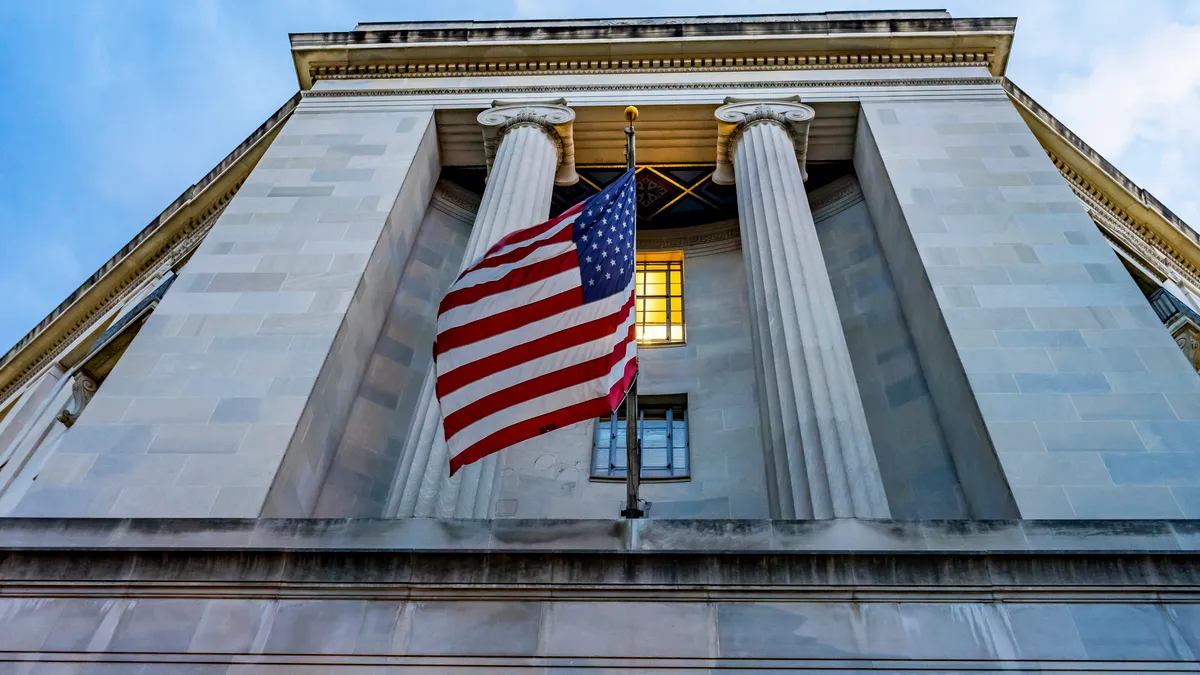Mastercard, the second-largest U.S. card network company, disclosed Thursday that it received a civil investigative demand from the Justice Department’s antitrust division last month.
“The CID focuses on Mastercard’s U.S. debit program and competition with other payment networks and technologies. Mastercard is cooperating with the DOJ in connection with the CID,” Mastercard disclosed in its quarterly filing Thursday with the Securities and Exchange Commission.
Visa also disclosed in a quarterly SEC filing on Thursday that it received a follow-on CID in January, supplementing an earlier CID that card network giant received.
The antitrust division is “seeking additional documents and information focusing on U.S. debit and competition with other payment methods and networks,” Visa said in its filing.
Both companies said they’re cooperating with the antitrust division’s investigation.
The Justice agency has been digging into debit card program routing issues since at least 2021, and the probe has likely been egged on by the Biden administration’s efforts to root out anticompetitive practices by American companies.
In 2020, the DOJ’s antitrust division sued Visa to stop its $5.3 billion acquisition of Plaid, a fintech company contemplating an electronic debit payment network to rival Visa’s business. In its civil lawsuit, the Justice Department said Visa violated antitrust laws in seeking to buy Plaid in 2019. The two firms ultimately dropped the planned transaction in 2021.
The antitrust division’s interest in the area dovetails with the Federal Reserve’s separate move to ensure that there is competition in the debit routing arena. The central bank last year clarified a rule calling on the card issuers to ensure that there are always at least two unaffiliated debit networks available for routing transactions, whether they take place in-person or online. That rule clarification is set to take effect in July.
Sen. Dick Durbin (D-IL) has also been seeking to break the stranglehold that Visa and Mastercard have on the industry for more than a decade. In 2010, he played a key role in sponsoring an amendment to the 2010 Dodd-Frank Wall Street Reform and Consumer Protection Act that limited the interchange fees that bank card issuers and the networks can charge when consumers use their debit cards to pay.
Last year, he introduced legislation aimed at reining in credit card interchange fees as well. That bill, the Credit Card Competition Act, would require that merchants have access to card networks other than Visa and Mastercard for routing credit card transactions. The legislation failed to pass, but Durbin’s office has said he plans to reintroduce the bill in this congressional session.
To accept and process credit card payments, interchange fees paid by merchants rose 20.2% last year over 2021 to $126.35 billion, according to the industry research firm Nilson Report. For debit and prepaid cards, the fees to process the transactions climbed 5.5% to $34.35 billion, the firm said in a March report.
Visa CEO Ryan McInerney this week told analysts during a conference call that he didn’t expect implementation of the requirement to make much difference to the company’s debit business because most card issuers it works with are already making alternative options available to merchants.
Mastercard’s chief financial officer, Sachin Mehra, told Bloomberg that he wasn’t surprised that the probe would touch other debit card companies like his, but he added that “it’s hard to speculate about the potential outcome,” the news outlet reported Thursday.
A bright spot, for Visa at least, was a February notification that the European Commission has closed a digital wallet investigation that included Visa, according to the card company’s quarterly filing this week. Still, Visa is continuing to cooperate with the EC on another investigation with respect to Visa’s incentive agreements for clients, the filing said.








